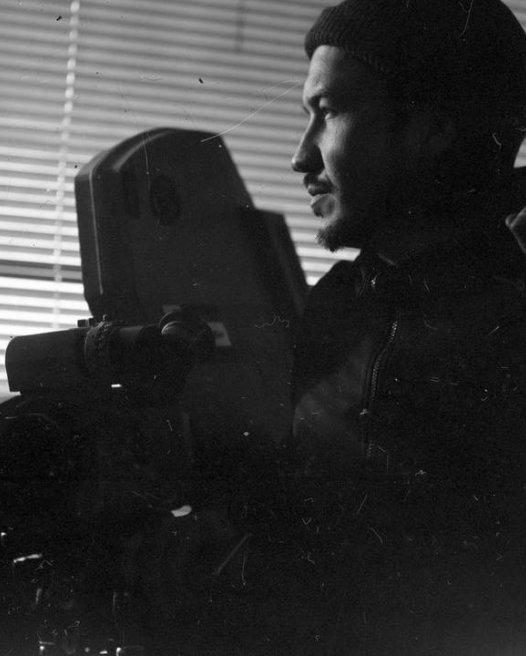The Schubert Effect
A guy called Stanislav Schubert lives some 300 km from the Russian capital in the very heart of Siberia. Schubert is half-German and he is very proud of his origin. His father's passed away a long time ago, and Schubert 's mother raised him on her own. She picked up on her son’s main passion, filmmaking, very early on. He was already operating a camera at the age of 8. His mum took on the role of his producer and assistant camera. Even though his hometown was once the center of Soviet documentary filmmaking, making a career in film in Siberia in what is commonly referred to as the ‘roaring nineties’ in Russian history proved to be impossible. But Schubert never gave up and continued to pursue his dream.
Schubert and his Mom lived in one of the roughest districts. Stanislav’s first films were about the local thugs and bandits. They either pitied him, or respected their own Vertov, either way, they never lay a finger on him.
Today Stanislav Schubert is a well-known public figure in Novossibirsk and beyond. He set up his own movie school. Together with his students he started to dramatize Tarantino, and make war films. The elderly generation of Siberian documentary filmmakers despise Schubert. To them, he is a wannabe obsessed with self-PR who never gets the job done and doesn’t know much about cinema. This might seem true at first sight: Schubert ’s life is weirdly cyclical – whenever he starts something new, he is full of excitement, readily spreading his passion all around; but soon his enthusiasm wears off and he switches to something different. He doesn’t think life’s been too good to him, he often refers to himself as a loser. Together with his students, Schubert gets carried away, distracted from the daily reality, sometimes confusing life and cinema.
The Schubert Effect is an ironic tragicomedy about an amateur filmmaker born in the wrong place at the wrong time.
Schubert and his Mom lived in one of the roughest districts. Stanislav’s first films were about the local thugs and bandits. They either pitied him, or respected their own Vertov, either way, they never lay a finger on him.
Today Stanislav Schubert is a well-known public figure in Novossibirsk and beyond. He set up his own movie school. Together with his students he started to dramatize Tarantino, and make war films. The elderly generation of Siberian documentary filmmakers despise Schubert. To them, he is a wannabe obsessed with self-PR who never gets the job done and doesn’t know much about cinema. This might seem true at first sight: Schubert ’s life is weirdly cyclical – whenever he starts something new, he is full of excitement, readily spreading his passion all around; but soon his enthusiasm wears off and he switches to something different. He doesn’t think life’s been too good to him, he often refers to himself as a loser. Together with his students, Schubert gets carried away, distracted from the daily reality, sometimes confusing life and cinema.
The Schubert Effect is an ironic tragicomedy about an amateur filmmaker born in the wrong place at the wrong time.
